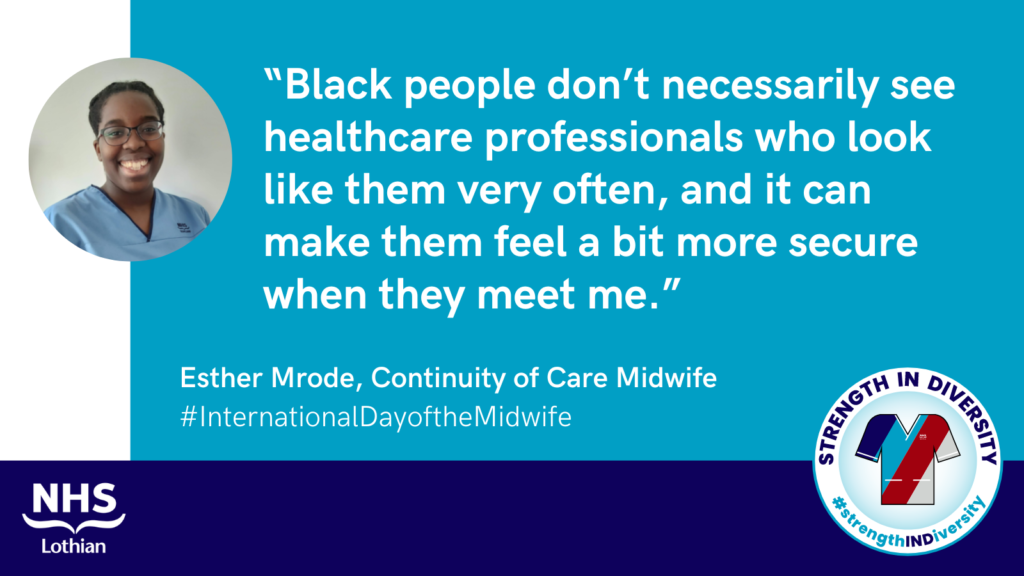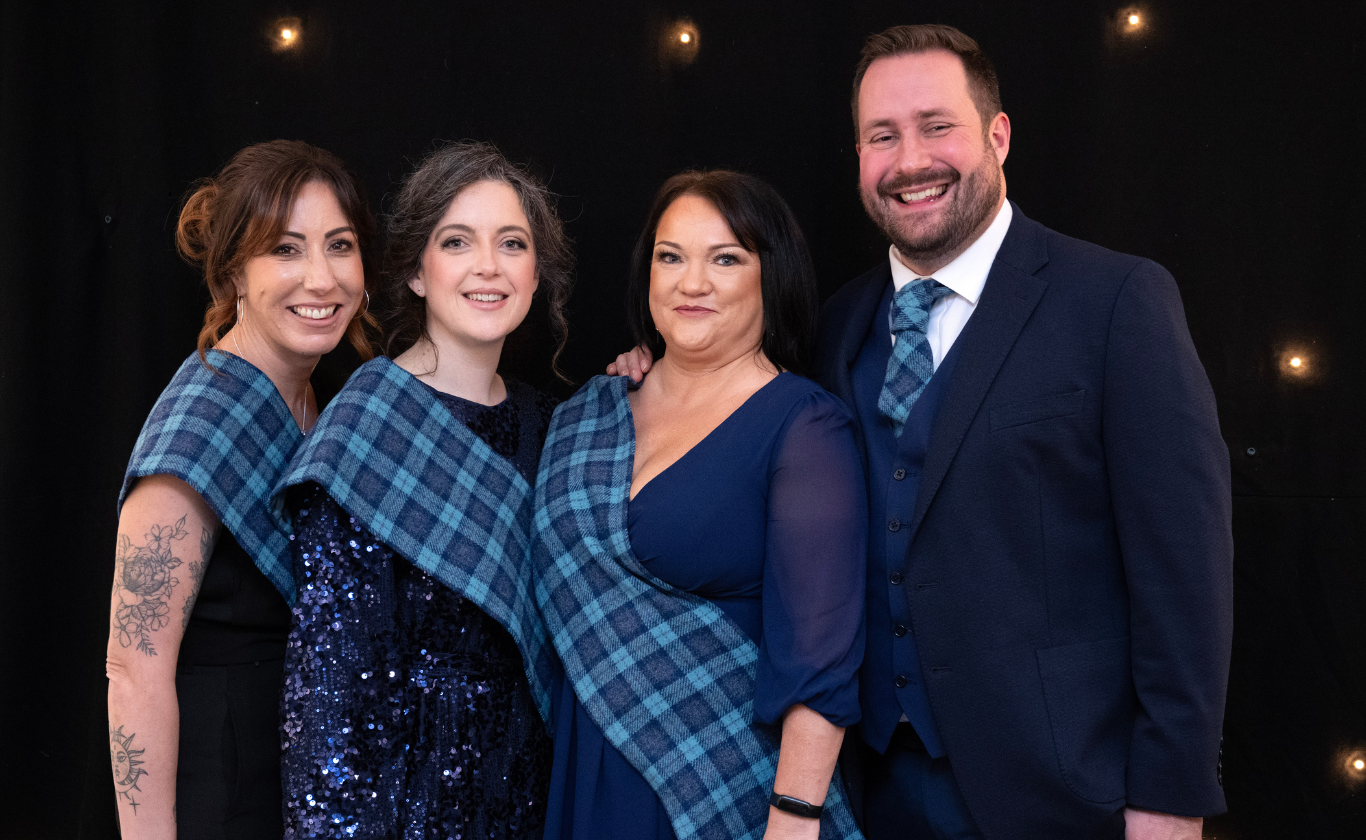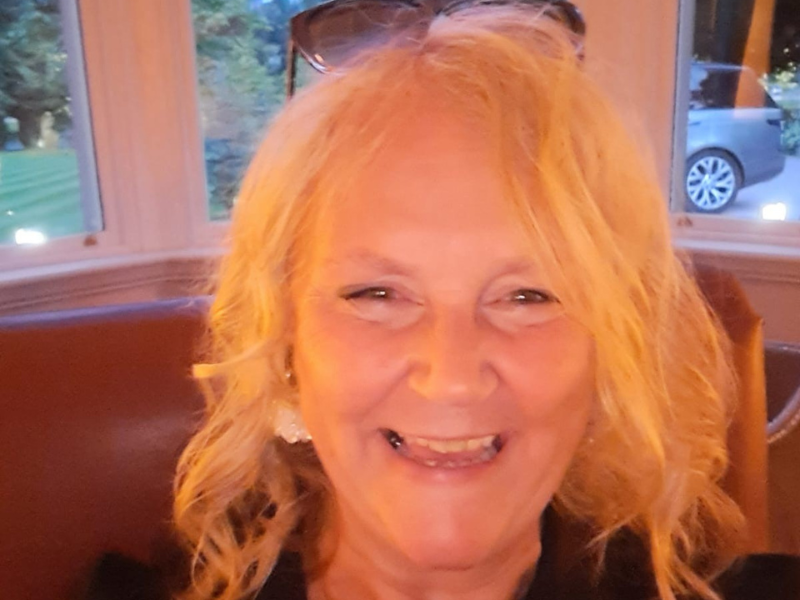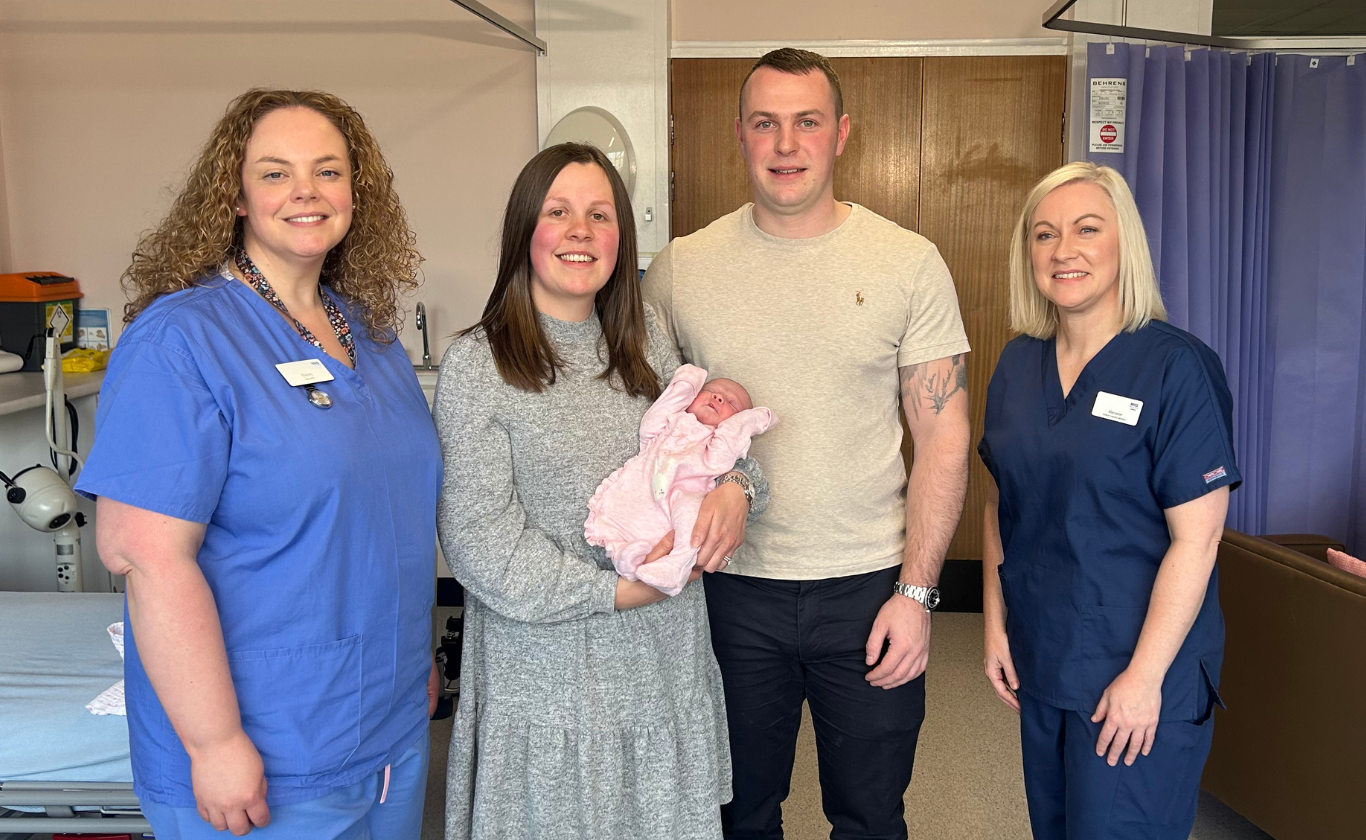This year, we are shining a light on the diversity within our midwifery and nursing staff for International Day of the Midwife (5 May), International Nurses’ Day (12 May) and International Clinical Trials Day (20 May). First we have a chat with Esther, an Edinburgh-based midwife.
Esther Mrode is a midwife based in Edinburgh who works within the continuity of care framework. “Continuity of care” is part of the Best Start scheme that launched in 2017, a five-year plan to improve maternity and neonatal services in Scotland. Through the scheme, expectant mothers and pregnant people will have one primary midwife throughout pregnancy, who can hopefully also be present at the birth. That midwife will also follow up with the person after birth.
Because Esther follows her clients throughout their pregnancy, her work is very flexible, and she supports antenatal clinics and does post-natal visits. “It’s a mix of hospital and community,” Esther says. “I really love it – it’s the best of both worlds, and you become a really well-rounded midwife with that experience.”
She is also able to build deeper relationships with her clients, all of whom have a direct line to Esther – her work phone number. “They can just ring me up and talk to a health professional right away,” Esther says. “Especially since so many other services are under massive pressures at the moment, I think it’s a huge relief for them that they can reach out with their concerns and get an answer right away.”
Esther says that she has been fortunate in her work and has not met any racial discrimination – but she is still a bit nervous about meeting new people. “Ninety-eight percent of the women you meet are absolutely fine,” she says. “Maybe two percent make you work a bit harder to prove yourself, but once you’ve done that, they’re also fine.”
However, she did experience prejudice in a previous health board. “I was one of only two Black midwives, and people would confuse us often,” Esther says. “Even though I was fresh out of university, and she had three kids and was a lot older than me.”
In her opinion, part of it is whether the population is racially diverse. Edinburgh and the Lothians have a more racially diverse population than the area she worked in before, and Esther finds that that suits her perfectly. “It’s really nice,” Esther says. “Black people don’t necessarily see healthcare professionals who look like them very often, and it can make them feel a bit more secure when they meet me.”
For example, Esther supported a woman from Sudan throughout her first pregnancy, which was also her first year in Edinburgh. “She saw snow for the first time,” Esther, who grew up in Edinburgh, says with a smile. “That was really magical, being able to share that with her.”
Language is one of the primary barriers Esther meets in her work, but it also affords her opportunities. “I was working with a Syrian refugee,” Esther tells, “and I put this book down on the table. It was a huge book, with everything you could possibly want to know about pregnancy. And it was in Arabic! Her eyes just lit up, and she mentioned it every time we saw each other after that, that she had been learning from it. Pregnancy can be a scary time because everything is new, and that’s exactly what we as midwives are here to support with, to alleviate that fear of the unknown.”






















